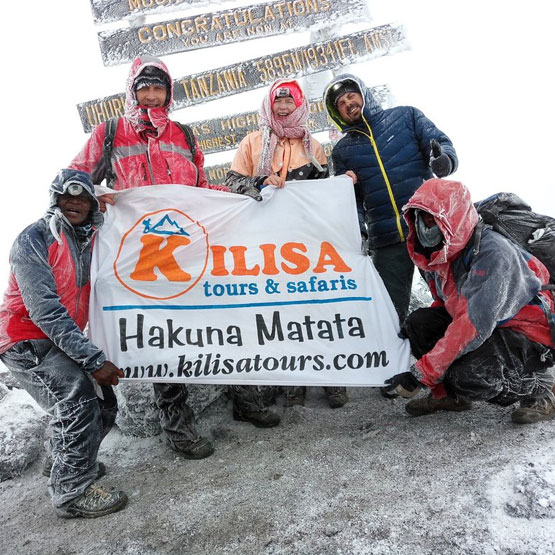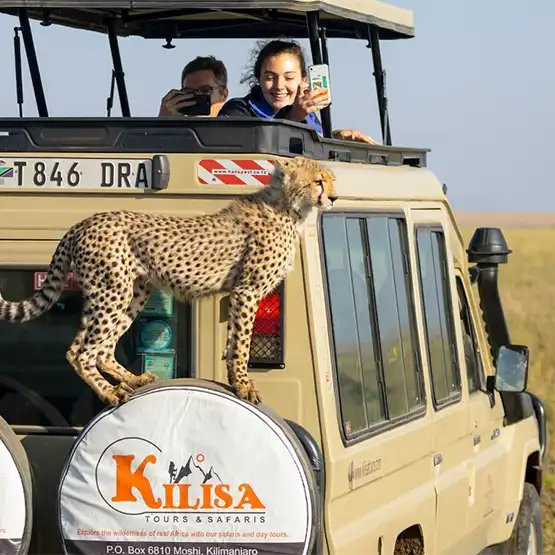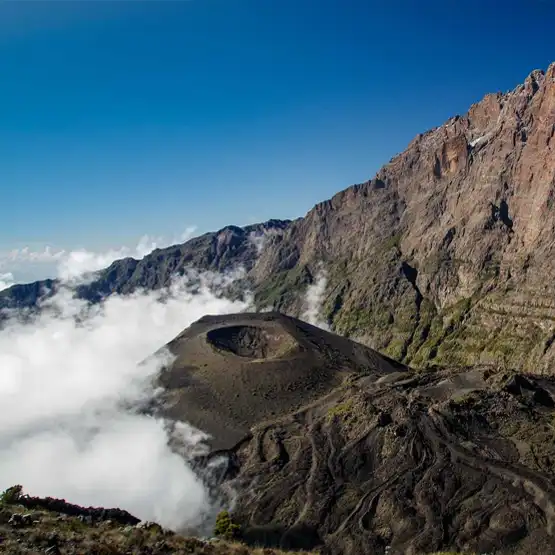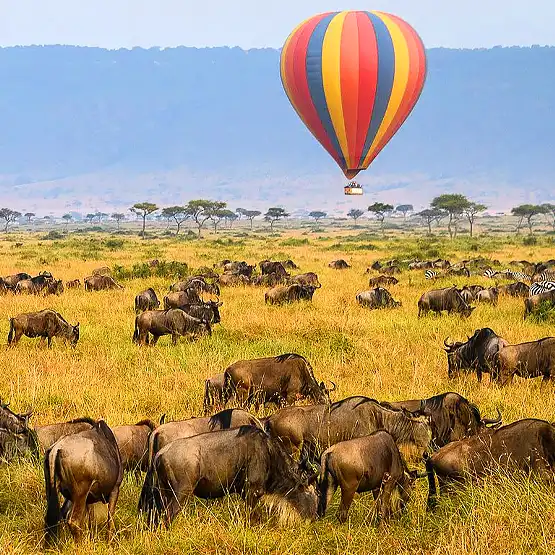Traveling to immerse yourself in the life of a Maasai warrior is not just a vacation; it’s a transformative experience. The rituals and traditions passed down across generations provide a unique perspective on resilience, courage, and community. For many, this is a chance to step out of their daily routines and embrace a way of life starkly different from the modern world.
Legitimately booking a Maasai warrior training experience requires diligent research and understanding. Companies such as African Eco Safaris and Maasai Mara Tours ensure authentic engagements, approved by local Maasai leaders. They offer comprehensive packages that include traditional ceremonies, warrior training sessions, and cultural exchanges, ensuring every traveler gets a genuine and respectful immersion.
Essential Elements of Maasai Warrior Training Experiences
One key aspect of Maasai warrior training is physical endurance. Trainees undergo rigorous exercises to boost their stamina and strength. This includes long-distance running and learning to handle traditional weapons like spears and shields. The training is designed to prepare them for various challenges in their environment. It’s both physically demanding and deeply rewarding.
The cultural significance and rituals form another essential element. The Maasai community holds these traditions in high regard, and every part of the training has a symbolic meaning. Ceremonies, such as the Eunoto, mark the transition from boyhood to manhood. Engaging in these rituals offers a profound connection with Maasai heritage. According to this post, these rituals are integral to their identity.
During the training, specific skills are taught that are crucial for survival. These include tracking wildlife, finding clean water, and constructing shelters. These skills are passed down through generations, ensuring that the knowledge remains within the tribe. Participants gain practical understanding by observing and practicing alongside experienced warriors. It’s a hands-on learning experience.
Interaction with the Maasai community is another vital aspect. Trainees live among the Maasai people, sharing meals and stories. This exchange provides a richer understanding of their lifestyle and values. According to the article, it fosters mutual respect and appreciation. These interactions are not just educational but also enrich personal experiences.
Role of Physical Endurance
Physical endurance is crucial in Maasai warrior training. It’s not just about muscles but stamina and resilience. Trainees often run long distances daily, sometimes up to 20 kilometers. These runs simulate the constant movement needed for hunting and protection. This routine ensures they can keep up with the demands of their environment.
Another aspect is the ability to endure harsh weather conditions. Warriors train under the scorching sun and in the chilly nights of the savannah. This teaches them to adapt and survive in different climates. Maintaining physical health is integral to being an effective warrior. Their diet and exercise regimens are designed for optimal performance.
The physical challenges are also mental tests. Pushing through pain and fatigue builds mental toughness. It teaches warriors to remain focused under stress. According to the article, this aspect is vital for handling real-life confrontations. Strengthening both body and mind is foundational in their training.
Group exercises help build camaraderie among trainees. Activities like wrestling and mock battles are common. These not only enhance strength but also teach strategy and teamwork. Training together forges a brotherhood among the warriors. This bond is essential for their cooperative survival efforts.
Cultural Significance and Rituals
The Maasai culture places immense value on traditions and rituals. These ceremonies mark key life stages and the transition between them. For instance, the Eunoto ceremony is essential as it signifies the journey from boyhood to warrior status. Each ritual is filled with symbolic acts that tie the present to the past. It’s a way to honor their ancestors and keep their heritage alive.
These rituals also serve to strengthen community bonds. During significant ceremonies, the entire tribe gathers to participate. They sing, dance, and share stories, creating a strong sense of unity. This collective experience reinforces the importance of their culture. According to the article, it helps maintain their identity in a rapidly changing world.
Training to be a Maasai warrior involves learning about these cultural facets. Trainees participate in and sometimes help lead rituals. This hands-on involvement deepens their understanding and appreciation. They learn the meanings behind each action performed during these ceremonies. It’s a vital part of their warrior education.
Rituals also instill values like bravery, respect, and responsibility. Young warriors learn to embody these traits through their actions. The elders guide them, passing down wisdom and expectations. By the end of their training, they are not just skilled fighters but also custodians of their culture. This holistic approach shapes well-rounded individuals who are proud of their identity.
Skills Taught During Training
One of the primary skills taught during Maasai warrior training is hunting. Trainees learn to track animals using visual cues and environmental signs. They practice stealth techniques to approach their prey silently. This skill is crucial for both providing food and protecting the community. It also builds a deep connection with nature.
Another important skill is spear throwing. Warriors must master the art of accurately throwing spears at targets. This is essential for hunting and self-defense. The training involves repetitive practice to improve aim and strength. Mastery of this skill is a source of pride for the warriors.
Constructing shelters is also part of the training. Trainees learn to build traditional Maasai homes called manyattas. These shelters are made from locally sourced materials like sticks, mud, and cow dung. Building these homes teaches resourcefulness and craftsmanship. It also enhances their survival skills in the wild.
Survival skills are further emphasized, including finding clean water. Trainees are taught to identify safe water sources in the wild. They also learn methods to purify water for drinking. These skills are vital in their harsh environment. Knowing how to find and preserve water can be a matter of life and death.
Self-defense is another key component of the training. Warriors learn various combat techniques to protect themselves and their communities. They practice using shields and spears in simulated battles. These exercises prepare them for real-life confrontations. Confidence in their abilities is crucial for their role as protectors.
Leadership and decision-making are woven into the training. Young warriors are taught to think critically and make strategic decisions. This is particularly important during hunts and conflicts. Elder warriors mentor them, passing on their wisdom. By the end of the training, they are prepared to lead their peers effectively.
Interaction with the Maasai Community
Living among the Maasai people provides trainees with unique insights into their daily lives. They share meals, stories, and traditions, fostering a sense of belonging. This experience goes beyond mere observation, offering active participation in community activities. Such immersion helps build mutual respect and understanding. It’s an essential part of the training.
One significant way trainees interact with the community is through village chores. They assist with tasks like herding cattle, fetching water, and farming. This hands-on involvement teaches the value of teamwork and hard work. It also gives a realistic perspective of Maasai life. These chores are vital in developing a sense of responsibility.
Participating in cultural events is another key aspect. Trainees join in celebrations, dances, and rituals. This active engagement helps them learn the meanings behind these traditions. By participating, they earn the community’s trust and respect. Such events are both educational and enjoyable.
Language learning is part of the interaction process. Trainees pick up basic phrases and greetings in the Maasai language. Communicating in their language shows respect and effort to integrate. It enhances the connection between trainees and the community. This linguistic exchange is enriching for both sides.
Personal stories and experiences are shared around evening bonfires. Elders recount tales of bravery, history, and lessons. These narratives provide wisdom and guidance for the trainees. Listening to these stories deepens their understanding of the Maasai way of life. It also reinforces the values taught during the training.
Building relationships with the Maasai people creates lifelong bonds. These connections often extend beyond the training period. Trainees leave with a deep appreciation and respect for the Maasai culture. This lasting impact enriches their lives long after they return home. It’s a transformative experience that stays with them forever.
How to Identify Authentic Maasai Warrior Training Opportunities
Finding genuine Maasai warrior training experiences requires careful research. First, look for programs endorsed by the Maasai community. Authentic opportunities are often organized with the direct involvement of local Maasai leaders. They ensure the training respects their culture and traditions. This endorsement is a strong indication of the program’s legitimacy.
Another key factor is the transparency of the organization. Reputable programs provide detailed information about their activities. They should clearly explain what the training involves, who conducts it, and how the fees are used. This transparency helps build trust. Avoid programs that are vague or secretive about these details.
Read reviews and testimonials from previous participants. These firsthand accounts can offer valuable insights into the authenticity of the experience. Positive reviews often highlight respectful interactions with the Maasai community. Look for consistent feedback about the program’s cultural integrity. This can help you make an informed decision.
Verify if the training includes genuine cultural elements. Authentic programs often incorporate traditional Maasai rituals and daily activities. Participants should engage in meaningful cultural exchanges, not just tourist attractions. This immersion is a key part of the training’s authenticity. According to this post, it enriches the overall experience.
Check if the organization supports the local community. Ethical programs contribute to the well-being of the Maasai people. This might include funding for education, healthcare, or community projects. Organizations that give back to the community are often more credible. Supporting such programs ensures your participation has a positive impact.
Ask questions before booking to clarify any doubts. Inquire about the nature of the training, the trainers’ backgrounds, and the community involvement. A legitimate organization will be open to addressing your queries. This proactive approach helps confirm the program’s validity. It also ensures you have a valuable and respectful experience.
Benefits of Booking Through Kilisa Tours for an Authentic Experience
Booking through Kilisa Tours guarantees a genuine Maasai warrior training adventure. They collaborate closely with the Maasai community to ensure authenticity. This partnership helps preserve cultural traditions while offering true-to-life experiences. You can trust that your training aligns with local customs and values. This level of authenticity enhances the overall experience.
One of the key benefits is their experienced guides. Kilisa Tours employs knowledgeable guides who are deeply connected to the Maasai culture. These guides provide insightful explanations and context for each activity. Their familiarity with local traditions ensures you receive accurate and respectful information. Having such guides enriches your learning during the training.
Another advantage is their well-structured itineraries. Kilisa Tours organizes carefully planned schedules that balance various aspects of the training. These itineraries include physical activities, cultural exchanges, and leisure time. Each element is thoughtfully integrated to offer a comprehensive experience. This structured approach ensures you make the most of your time without feeling overwhelmed.
Kilisa Tours also emphasizes sustainable tourism practices. They engage in eco-friendly operations that benefit both travelers and locals. By supporting community development initiatives, they contribute positively to the Maasai people’s well-being. Choosing such a tour provider means your visit has a meaningful impact beyond personal enjoyment.
Their safety measures are another important factor. Kilisa Tours prioritizes participant safety throughout the program. They ensure all activities meet proper safety standards and provide necessary support when needed. This focus on safety allows you to fully immerse yourself in the experience without worry.
Booking through Kilisa Tours offers excellent customer service as well. From initial inquiries to post-trip feedback, their staff is responsive and helpful. This commitment to quality service adds value to your experience from start to finish. It’s all about ensuring your journey is smooth, educational, and unforgettable.
What to Expect During Your Maasai Warrior Training Session
Your Maasai warrior training session will start with an introduction to the daily routines of a Maasai warrior. You’ll engage in physical activities such as running and spear-throwing. These exercises help build strength and agility. The aim is to prepare you for the physical demands of warrior life. Expect to be pushed to your limits but in a supportive environment.
Another key part of the training is learning survival skills. You’ll be taught how to find clean water and identify edible plants. These lessons are crucial for surviving in the wild. You may also learn how to track animals and set up camps. These skills are not just practical but also provide a deep connection with nature.
Cultural immersion is a significant aspect of the experience. You will participate in traditional ceremonies and rituals. This includes singing, dancing, and storytelling sessions with the elders. Such activities help you understand the cultural significance behind each tradition. It’s a unique chance to experience the rich Maasai culture firsthand.
Interacting with the Maasai community will be a regular part of your training. You’ll share meals, work on daily chores, and learn from their way of life. This interaction fosters mutual respect and understanding. It’s also a great opportunity to make lasting connections. The community aspect adds depth to your overall experience.
Your training will also focus on mental resilience. Activities are designed to test your endurance and focus under pressure. You’ll face challenges that require quick thinking and teamwork. These exercises are aimed at preparing you for real-life situations. They build both physical and mental strength.
At the end of your training, there may be a small ceremony to celebrate your achievements. This is a proud moment for participants, marking the end of their journey. It acknowledges the hard work and dedication you have put into the training. This ceremony often leaves a lasting emotional impact, sealing your bond with the Maasai culture.






